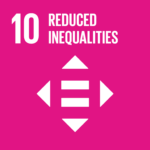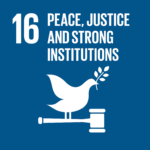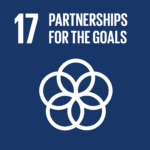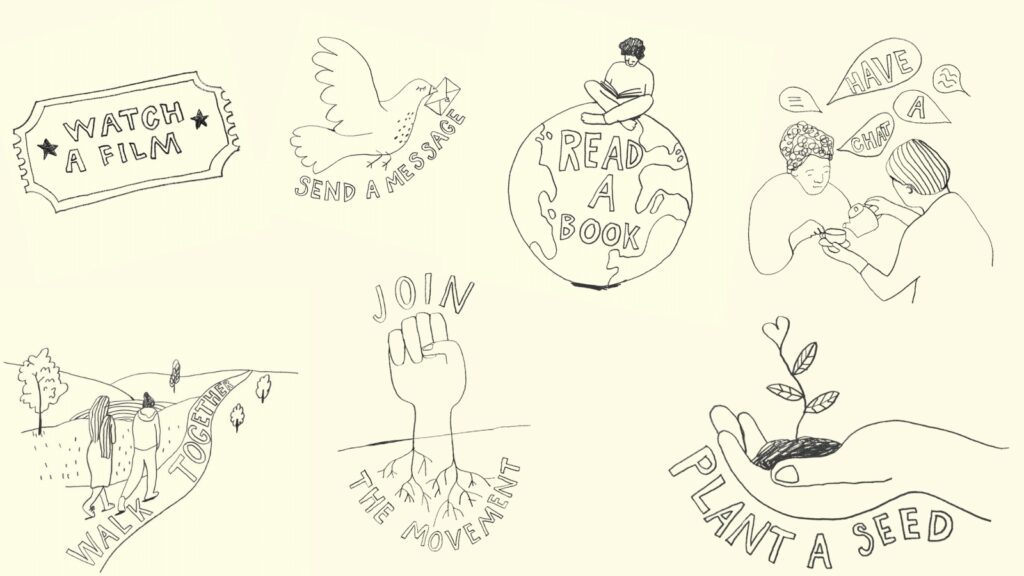Our The Simple Acts campaign builds upon the idea of Refugee Week, and gives us something we can do all year round – in fact, you can start today!
The #SimpleActs movement is about inspiring people to use small, everyday actions to learn and do more with refugees. The Simple Act is an invitation to take a step back from the current moment, and imagine the world you want to see. You can take this Simple Act wherever your imagination wants to go, and start as small or as big as you like. Anything you can think of!
RELEVANT SUSTAINABLE GOALS



Countdown to The Refugee Week
Simple Acts are everyday actions we can all do to stand with refugees and make new connections in our communities. For Refugee Week 2022 (20-26 June) we invited you to do one or more of the eight Simple Acts below, inspired by the theme ‘Healing’ :
1. SEND A MESSAGE
What message would you like to send in solidarity with people seeking safety, such as those fleeing violence in Afghanistan or Ukraine? Share your message online using #SendaMessage and #SimpleActs, and together let’s flood social media with kindness and solidarity.
Going further:
- Write, draw or craft your message of kindness and hope, and display it somewhere the world can see it.
- Join with others to organise a letter-writing exchange for Refugee Week. How will your messages travel across real and imagined borders? What can we learn from each other?
- Send a message or card to someone who is going through a hard time, to let them know they are not alone.
- Send a thank you card or message to someone who has helped you. It could be recently, or a long time ago. Maybe they taught you something, supported you through difficulties or made you feel welcome, and you never had the chance to thank them – until now!
- Write a message to your imagined descendants or someone in the future. What are your hopes for the world they are living in? What might we do today to bring it about?
Share your messages on social media using #SendaMessage #SimpleActs.If your social media post includes images or names of other people, make sure you get permission first, including from parents/ guardians of anyone under 18
2. Share a Dish
Food can say welcome or hold precious memories. Food says we are neighbours, friends, or chosen family. We are still alive, and we can feel joy. Food is healing. Food is home.
Every Refugee Week, people come together over food, sharing recipes, teaching each other dishes and of course, sitting down to share meals. This year, Grassroots Future HK hosts Virtual Cook-a-long on 22 June.
3. Have A Chat
FoodOne thing lockdown surely taught us all was how much of a difference a conversation can make. Just saying hello and asking how someone how they are can be all it takes to lift their day. Likewise, warm and open conversations where everyone feels heard can help people around us to think about displacement and migration in new ways.
There are hundreds of ways to have a chat – here are some ideas to get you started:
- Say hello to someone new in your neighbourhood, workplace, school or community. Ask how they’re doing. Lament or celebrate the weather. It might just make their day!
- Start a conversation with a friend or family member about what it means to be a refugee. Share your experiences, listen to theirs and discover which values you both share. If you’re not sure where to start, take a look at the resources below.
- Hold a ‘conversation café’ as part of your Refugee Week event – the resource below has some menu ideas to help you.
Resources:
- Changing the Conversation: A Messaging Guide by Freedom From Torture
- Our Media Toolkit: Creating messages and stories by IMIX (especially p5)
- Conversation Menu, Refugee Week 2021
Whether you’re having a one-to-one conversation or facilitating a group discussion, don’t forget to be sensitive to others’ experiences and respect their boundaries about what they want to share.
4. Watch A Film
Ready to go on a journey without leaving your seat? This Simple Act invites you to learn more about refugee experiences through the magic of film.
Watch with family or friends at home, or hold a screening at your workplace, arts or community space, school – anywhere you like! Help the film travel even further by recommending it to a friend, or writing a review on a site like Rotten Tomatoes.
Wondering what to watch? Look no further – Moving Worlds by Counterpoints Arts is a special selection of features and shorts with discussion resources, available to screen or watch at home during Refugee Week. This year, the films are inspired by the theme ‘Healing’. For children and young people, take a look at IntoFilm’s selection of refugee-related feature films, or our list of short films for children of all ages.
Join Advocates For Refugees – Singapore (AFR – SG) for a screening and post-show talk co-presented with The Projector! Featuring a panel of speakers from diverse backgrounds and experiences in academia, humanitarian work and advocacy, to discuss and learn about the realities of living beyond the margins and how we can embrace our commonalities as humankind.
5. Read A book
Humans have been telling stories for thousands of years, possibly for almost as long as we’ve been able to speak. Stories are a way of making sense of the world and sharing information. They help us better understand other people, and ourselves. And it’s never been easier to pick up a book written in another language, place and time – how magical is that?
This Simple Act invites you to pick a book or short story to read alone, with friends or at a book club. Journey through its pages and pass it on, recommend to a friend or on social media, or go further by writing an online book review.
Resources:
- Books about refugees and asylum seekers for children, Booktrust
- Refugee Week book recommendations, Waterstones
6. Walk Together
Wherever you walk and whoever you walk with, you’ll be joining people up and down the country, coming together to create new connections and reflect on the journeys that refugees face. You can walk together whenever you wish – it is all about bringing communities together to celebrate what we have in common.
7. Plant A Seed
Listening to birdsong. Watching the clouds pass. Feeling the coolness of soil as it crumbles between your fingers.
Whatever we’ve been through, nature can calm and ground us, and help us believe that new beginnings are possible. Reconnecting with the earth can also help us remember our place in the natural world, rediscovering that we are part of nature, and it is part of us.
The heating of our planet is already causing people to lose their homes and livelihoods, and will affect all of us. The Earth, our shared and only refuge, has never been under greater threat. As we face a climate emergency, it is only natural to feel fearful and powerless. What can we possibly do to make a difference, when the threat is so huge?
But sometimes it’s when we most need to act that we also need to slow down. Coming together with others to reconnect with nature can help us imagine a future where the Earth’s balance is restored, and work out what actions we can take in our communities to help our planet to heal. To paraphrase the climate justice collective Wretched of the Earth, there is power in our collective imagination, and all big changes begin as ideas for the future.
This Simple Act invites to join with others to plant a seed, and watch it grow. You might plant a seed (or more!) at school, with an organisation or group you are part of, on your windowsill, while on a walk or as part of a Refugee Week event. While you are planting together, we invite you to learn more about climate justice, commit to taking action together, or take a moment to imagine what a greener, more joyful planet might look like for you locally.
8. Join The Movement
Refugee Week lasts for seven days, but the movement for a kinder, fairer and more joyful world continues all year round. Once June is over, we hope you’ll carry the spirit and energy of Refugee Week with you, and continue to walk alongside people on the move.
Every action makes a difference, and when we come together, we are powerful.



![[Refugee Week 2022] Virtual Cook-a-long](https://changemakr.asia/wp-content/uploads/283229802_426944275935101_1597272592036096783_n-2-1024x576.jpg)